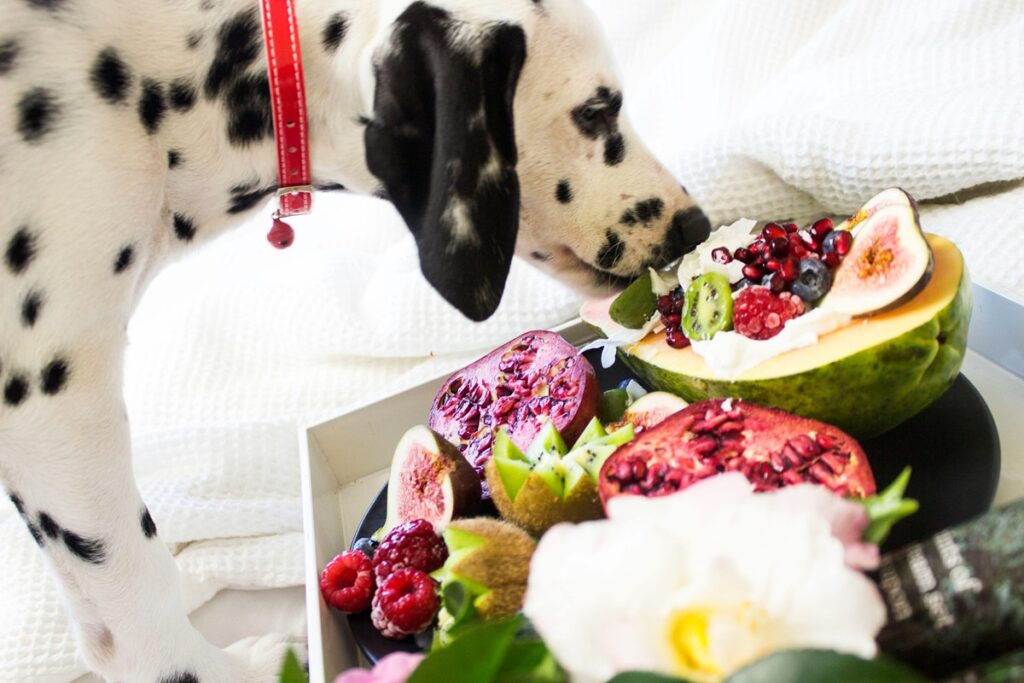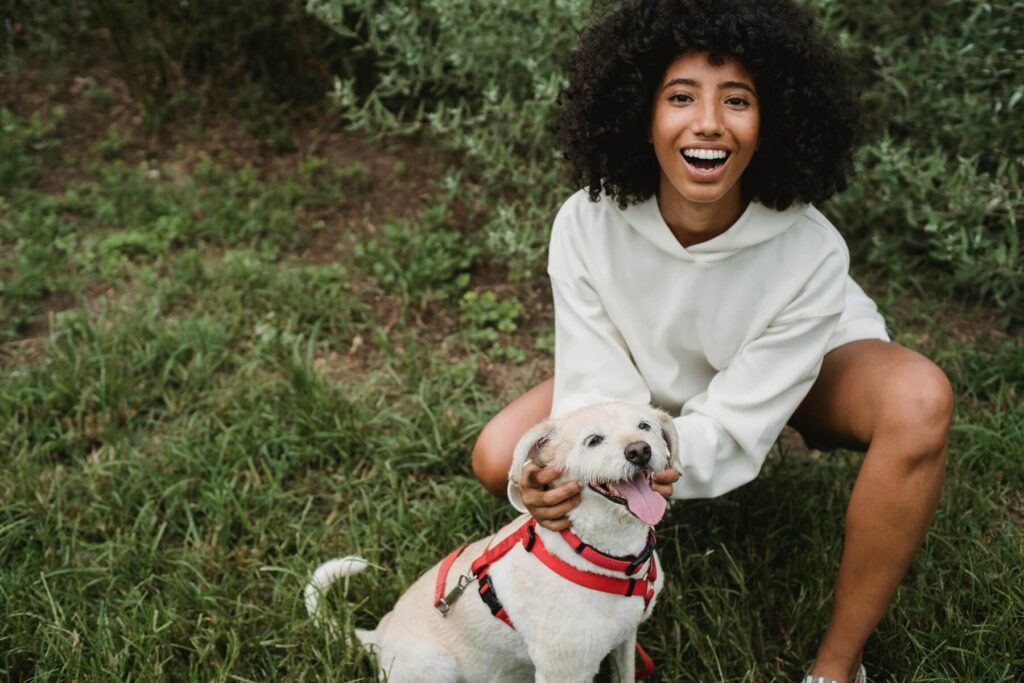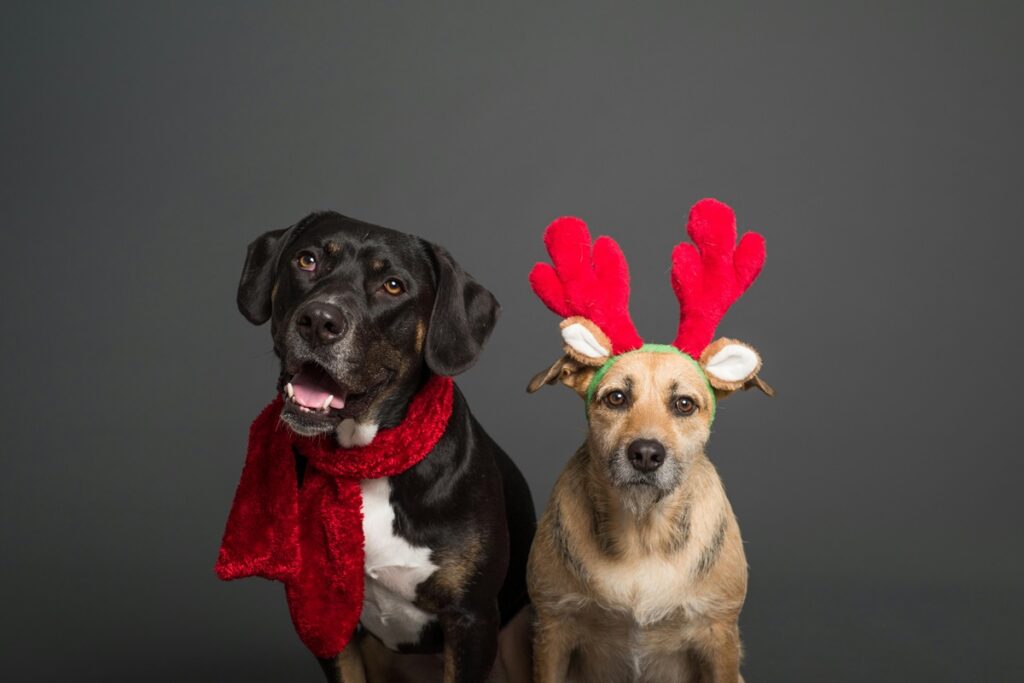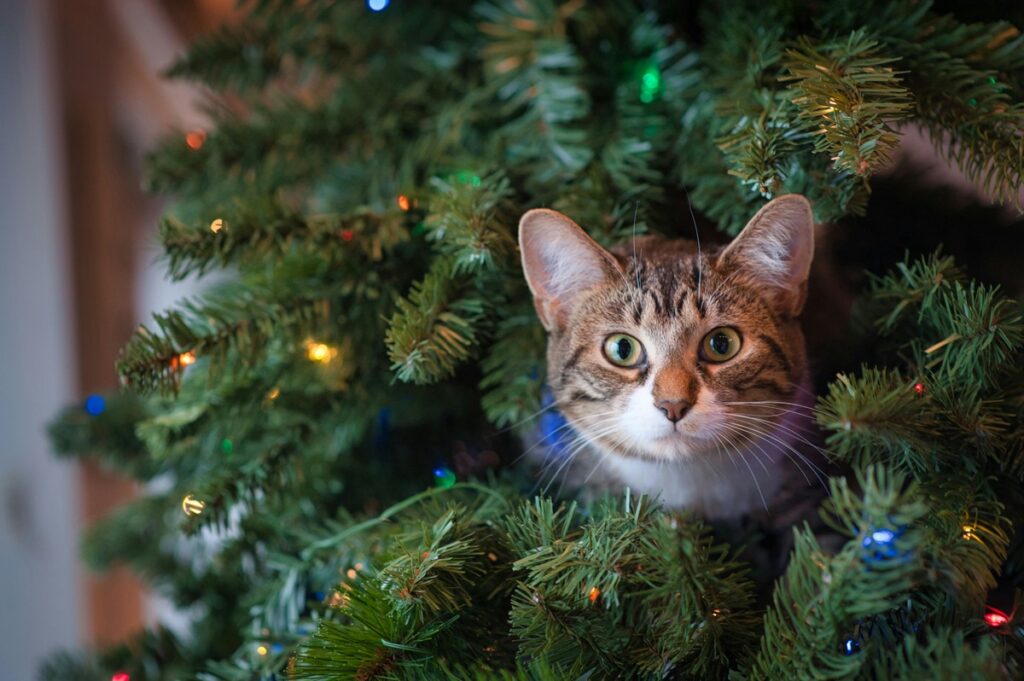
As a dog mom preparing for the festive season, you’re probably wondering how to include your furry family member in the Christmas celebrations without compromising their health. With the holiday season approaching, it’s crucial to know which festive treats are safe to share with your four-legged friend and which could lead to an emergency vet visit – something no pet parent wants during the celebrations.
Understanding the Importance of Safe Holiday Feeding
Before we dive into the specifics, let’s acknowledge why this matters. As pet parents, we often treat our dogs as family members, and it’s natural to want to share our holiday joy with them. However, our festive favorites can sometimes be dangerous for our canine companions. By understanding what’s safe and what’s not, you can create special holiday memories without risking your pup’s health.
Safe Christmas Foods Your Dog Can Enjoy
1. Turkey: The Holiday Staple
When prepared correctly, turkey can be a safe and delicious treat for your dog. Here’s how to serve it safely:
- Remove all skin (it’s too fatty and often seasoned)
- Ensure meat is thoroughly cooked
- Remove ALL bones (they can splinter and cause serious injury)
- Serve in small portions (about 1-2 small pieces for small dogs, 3-4 for larger breeds)
Pro Tip: Set aside some plain, unseasoned turkey before adding your holiday seasonings. This way, you’ll have a pet-safe portion ready to go.
2. Dog-Friendly Vegetables
Many traditional Christmas vegetables are perfectly safe for your pup:
- Serve plain, without butter or seasonings
- Can be steamed or baked
- Avoid candied versions with marshmallows or sugar
- Portion size: 1-2 tablespoons for medium-sized dogs
- Excellent low-calorie treat
- Serve steamed or raw
- Skip the green bean casserole
- Portion size: 5-6 beans for small dogs, 10-12 for larger breeds
- Great source of vitamins and minerals
- Can be served raw or cooked
- Avoid glazed or honey-roasted versions
- Portion size: 1-2 baby carrots or 2-3 cooked carrot pieces
- Use pure pumpkin, not pie filling
- Helps with digestion
- Portion size: 1-2 teaspoons for small dogs, 1-2 tablespoons for large dogs
Special Holiday Treats That Are Dog-Friendly
3. Homemade Christmas Dog Treats
Want to make something special for your pup? Here are some simple, dog-safe holiday treats you can prepare:
Peanut Butter Christmas Cookies:
- Use natural peanut butter (ensure it’s xylitol-free)
- Mix with whole wheat flour and one mashed banana
- Shape into festive designs
- Bake until crispy
- Store in an airtight container for up to one week
Pro Tip: Make these treats in advance and use them to distract your dog during the main Christmas meal.
4. Safe Traditional Sides
Several holiday side dishes can be modified for your dog:
Mashed Potatoes:
- Set aside a portion before adding butter, milk, or seasonings
- Serve plain and warm (not hot)
- Portion size: 1-2 tablespoons maximum
Plain Rice:
- Excellent bland option
- Avoid adding any seasonings
- Can help settle upset stomachs
- Portion size: 2-3 tablespoons for medium-sized dogs
Dangerous Christmas Foods to Avoid
5. Toxic Holiday Ingredients
Keep these common Christmas foods away from your dog:
Chocolate and Cocoa Products:
- All forms are toxic (dark chocolate is most dangerous)
- Keep Christmas cookies out of reach
- Store chocolate gifts where dogs can’t access them
- Signs of chocolate poisoning: vomiting, diarrhea, increased thirst, restlessness
Artificial Sweeteners:
- Especially xylitol (found in sugar-free treats)
- Can cause rapid blood sugar drops
- Found in many baked goods and candies
- Symptoms include weakness, collapse, and seizures
Grapes and Raisins:
- Both fresh and dried forms are toxic
- Common in Christmas cakes and puddings
- Can cause kidney failure
- Even small amounts can be dangerous
Onions and Garlic:
- All forms (raw, cooked, powdered)
- Found in many gravies and stuffings
- Can cause anemia
- Effects may not show for several days
6. High-Risk Holiday Foods
These foods aren’t necessarily toxic but can cause serious problems:
Fatty Foods:
- Turkey skin
- Gravy
- Ham
- Can cause pancreatitis
- Signs include severe abdominal pain and vomiting
Seasoned Dishes:
- Stuffing
- Casseroles
- Often contain multiple harmful ingredients
- High salt content can be dangerous
Alcohol-Containing Treats:
- Rum cake
- Brandy sauce
- Even small amounts can be toxic
- Keep all alcoholic beverages out of reach
Don’t miss out – check it out NOW! 👇
Tips for a Safe Holiday Feast
7. Creating a Dog-Friendly Christmas Plate
Make your pup feel special with these safe serving tips:
Portion Planning:
- Follow the 90/10 rule (90% regular dog food, 10% treats)
- Create a small separate plate for your dog
- Serve treats away from the dining table
- Use portion control to prevent weight gain
Safe Serving Ideas:
- Use a puzzle feeder to make treats last longer
- Spread special meals throughout the day
- Keep treats at room temperature
- Always have fresh water available
8. Managing Guest Interactions
Protect your dog from well-meaning visitors:
Communication Strategy:
- Inform guests about your dog’s dietary restrictions
- Place “Do Not Feed” signs in visible locations
- Designate one person to monitor your dog during gatherings
- Keep approved treats handy for guests who want to share
Prevention Tips:
- Create a quiet space for your dog away from food
- Use baby gates to block kitchen access
- Clean up immediately after meals
- Store leftovers promptly
When to Contact Your Vet
9. Recognizing Emergency Situations
Watch for these warning signs:
Immediate Action Required:
- Repeated vomiting
- Diarrhea lasting more than 4 hours
- Lethargy or collapse
- Difficulty breathing
- Seizures
- Excessive drooling
Less Urgent but Concerning:
- Reduced appetite
- Mild stomach upset
- Changes in behavior
- Excessive thirst
- Constipation
10. Emergency Preparedness
Be ready for holiday emergencies:
Essential Contact Information:
- Your regular vet’s holiday hours
- Local 24/7 emergency vet clinics
- Pet poison control hotline: (888) 426-4435
- Keep numbers saved in your phone
Emergency Kit Contents:
- Recent photo of your dog
- Copy of vaccination records
- Basic first aid supplies
- Plain canned pumpkin for upset stomachs
- Hydrogen peroxide (only use if directed by a vet)
Conclusion
Creating a dog-friendly Christmas celebration doesn’t mean sacrificing tradition – it just means being mindful of your furry friend’s health and safety. By following these guidelines, you can ensure your dog enjoys the holiday season as much as you do. Remember, the best gift you can give your pet is keeping them safe and healthy.
Key Takeaways:
- Prepare safe portions of plain turkey and vegetables
- Keep toxic foods securely stored
- Have emergency contacts ready
- Communicate clear feeding rules to guests
- Monitor portion sizes and treat frequency
Call to Action
Want more pet-friendly holiday tips? Join our community of pet parents! Share your favorite dog-safe Christmas recipes in the comments below, and don’t forget to bookmark this guide for future reference. Sign up for our newsletter to receive more seasonal pet care advice and exclusive dog-friendly recipes straight to your inbox.
Remember, when in doubt about any food item, it’s always better to err on the side of caution and consult with your veterinarian. Your dog’s health and safety are worth more than any momentary treat indulgence.
This article contains affiliate links, which means I may earn a commission if you purchase through these links. There is no extra cost to you.
All images on this website are sourced from Free Stock Photos: Pexels. Visit Pexels for more amazing free stock photos.




Pingback: Is Turkey Safe for Cats? A Complete Feeding Guide (2024)